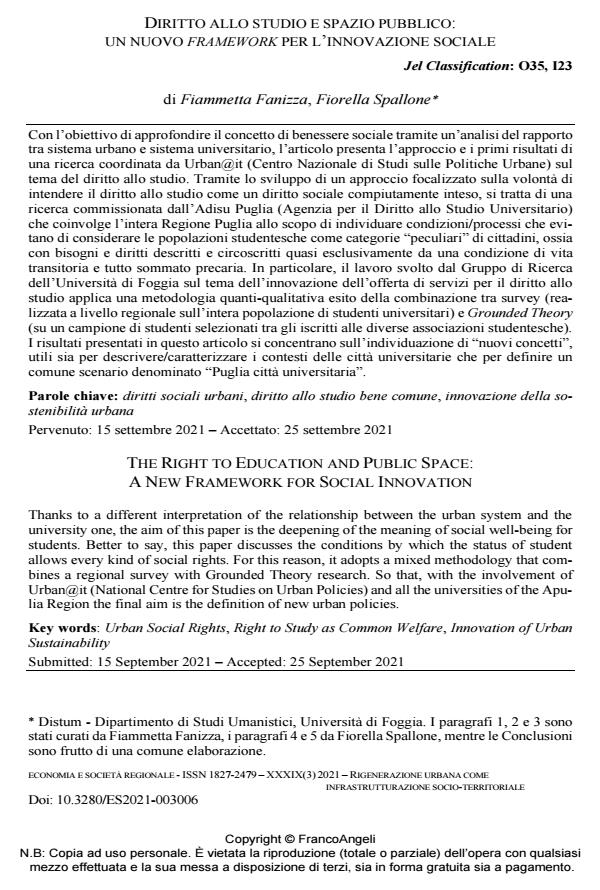Diritto allo studio e spazio pubblico: un nuovo framework per l’innovazione sociale
Journal title ECONOMIA E SOCIETÀ REGIONALE
Author/s Fiammetta Fanizza, Fiorella Spallone
Publishing Year 2022 Issue 2021/3
Language Italian Pages 14 P. 77-90 File size 273 KB
DOI 10.3280/ES2021-003006
DOI is like a bar code for intellectual property: to have more infomation
click here
Below, you can see the article first page
If you want to buy this article in PDF format, you can do it, following the instructions to buy download credits

FrancoAngeli is member of Publishers International Linking Association, Inc (PILA), a not-for-profit association which run the CrossRef service enabling links to and from online scholarly content.
Thanks to a different interpretation of the relationship between the urban system and the uni-versity one, the aim of this paper is the deepening of the meaning of social well-being for stu-dents. Better to say, this paper discusses the conditions by which the status of student allows every kind of social rights. For this reason, it adopts a mixed methodology that combines a regional survey with Grounded Theory research. So that, with the involvement of Urban@it (National Centre for Studies on Urban Policies) and all the universities of the Apulia Region the final aim is the definition of new urban policies.
Keywords: Urban Social Rights, Right to Study as Common Welfare, Innovation of Urban Sustainability
Jel codes: O35, I23
Fiammetta Fanizza, Fiorella Spallone, Diritto allo studio e spazio pubblico: un nuovo framework per l’innovazione sociale in "ECONOMIA E SOCIETÀ REGIONALE " 3/2021, pp 77-90, DOI: 10.3280/ES2021-003006